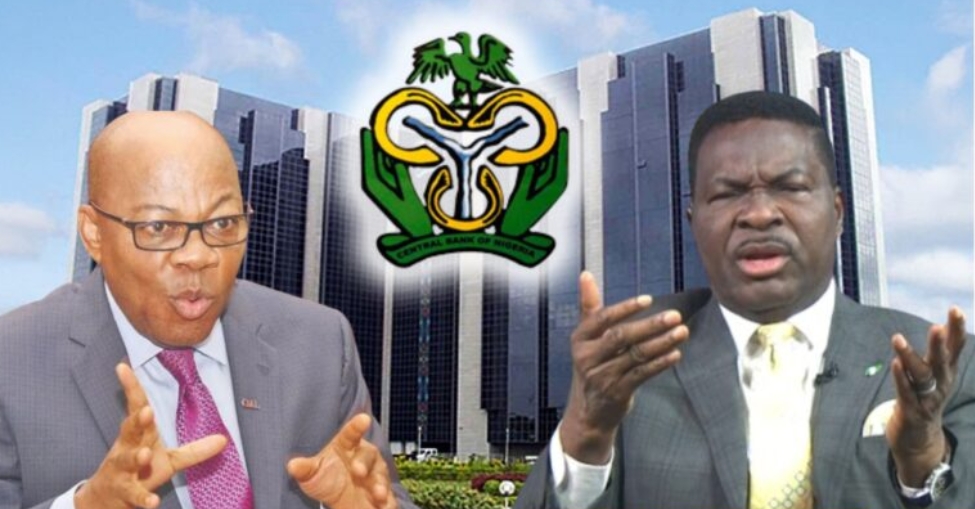Lawyers are scrutinizing the legal implications of the Central Bank of Nigeria’s (CBN) reaffirmation that its Ways and Means Advances to the federal government will remain capped at 5% for the fiscal years 2024-2025.
Last Tuesday, the CBN announced it can advance up to 5% of the previous year’s actual collected revenue to the federal government, with repayment required within the year to prevent long-term fiscal challenges. The Ways and Means facility enables the CBN to provide short-term financing to address budget shortfalls, consistent with its Monetary, Credit, Foreign Trade, and Exchange Policy Guidelines for 2024-2025.
In exclusive interviews, prominent legal practitioners shared insights into this development regarding Nigeria’s financial laws.
The CBN clarified that future advances will account for sub-accounts linked to the Consolidated Revenue Fund (CRF), ensuring a consolidated cash position for the federal government in line with Treasury Single Account (TSA) arrangements. The bank noted, “Consistent with the banking arrangement of the Treasury Single Account (TSA), Ways and Means Advances will now be determined after recognizing the sub-accounts of the various MDAs,” emphasizing the importance of a unified financial approach.
Perspectives from Legal Experts
Dr. Olisa Agbakoba, SAN, described the CBN’s 5% limit as a necessary measure to control public sector borrowing and mitigate inflationary pressures. He remarked, “The 5% cap is intended to control inflation; otherwise, a government might continuously print money to fund its public spending.”
However, he criticized the lack of economic fundamentals behind such borrowing practices, stating, “You cannot borrow without the underlying fundamentals that the economy will benefit from.”
He stressed that funds should be allocated for productive purposes rather than recurrent obligations, asserting, “If the borrowing is for productive purposes, then Ways and Means is in principle good. But if it’s for recurrent expenditures, it leads to inflationary pressures.”
Professor Mike Ozekhome, SAN, emphasized the constitutional requirement for a supplementary budget to authorize these advances.
He stated, “In the absence of authorization by the National Assembly for a supplementary budget, the advances become beyond the powers of the apex bank and unconstitutional.”
He elaborated, “The 1999 Constitution is supreme, and we cannot overlook the legal frameworks that govern our financial operations.” Ozekhome cautioned against opaque budgeting processes, saying, “A government should plan thorough budgets, not knee-jerk ad-hoc appropriations that lack transparency and accountability. This is a breeding ground for corruption.”
Public interest lawyer Opatola Victor highlighted concerns over the implications of unchecked money printing by the CBN to fund these advances.
He warned, “Unchecked money printing inevitably fuels inflation, as more money circulates without a corresponding increase in goods and services.”
He added, “The average Nigerian feels the consequences in rising prices, diminishing purchasing power, and an overall decline in economic well-being. This cycle must be broken.”
Legislative Developments
Recently, the Nigerian legislature moved to increase the CBN’s lending cap from 5% to 10%. However, Murtala Sabo Sagagi, a member of the Monetary Policy Committee, raised alarms about potential inflationary consequences of this change, warning, “This development poses a risk of exacerbating inflationary pressures and undermining the efforts of the CBN to stabilize the economy.”
He added, “We must be cautious about how we approach fiscal policies that can lead to greater instability.”
The CBN’s Governor, Yemi Cardoso, has stated that no new Ways and Means will be granted until previous loans are repaid, reflecting a cautious approach to fiscal management. Cardoso noted, “This is one of the measures taken by the apex bank to address the economic issues currently plaguing the country.” He emphasized, “Our priority must be to ensure that the CBN acts responsibly and in accordance with its statutory mandates.”
The Minister of Finance, Wale Edun, confirmed that the federal government has repaid N7.3 trillion in advances to the CBN, underscoring the ongoing fiscal challenges facing Nigeria. He stated, “This repayment is crucial for restoring trust in our financial systems and ensuring sustainable economic growth moving forward.”
As discussions continue, the balance between fiscal responsibility and economic stability remains a critical concern for both legal experts and policymakers in Nigeria. Victor warned, “Without vigilant oversight from the public, accumulated debts will continue under different guises, eroding the economic prospects of ordinary Nigerians.”
